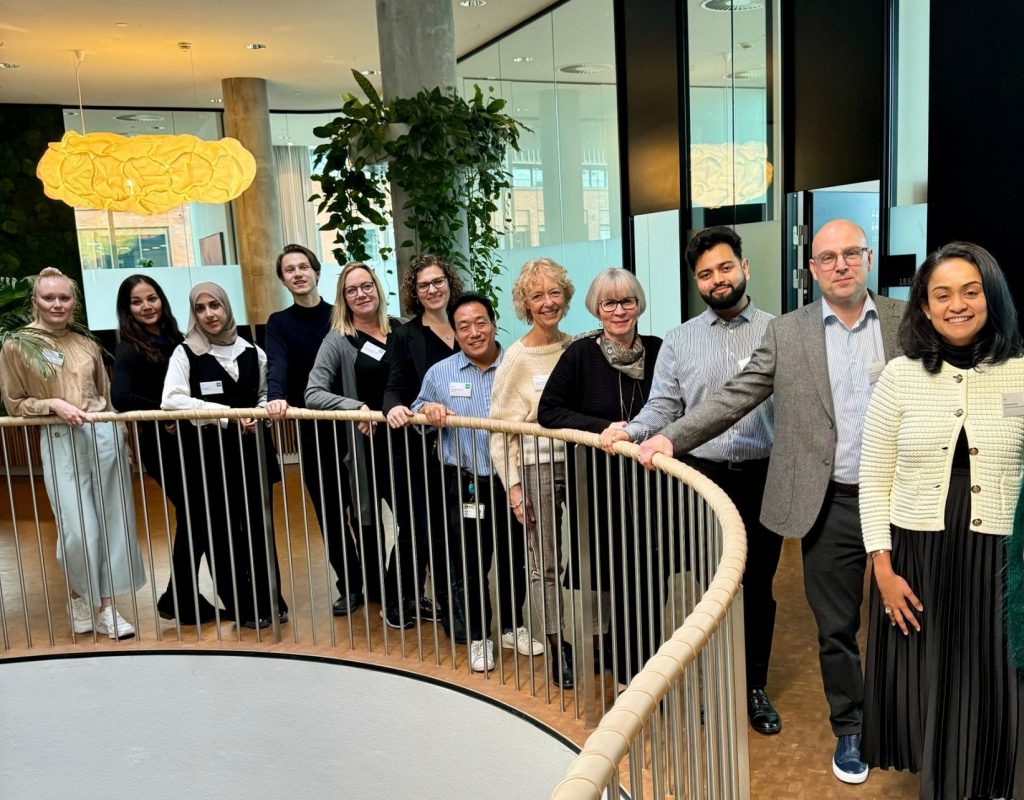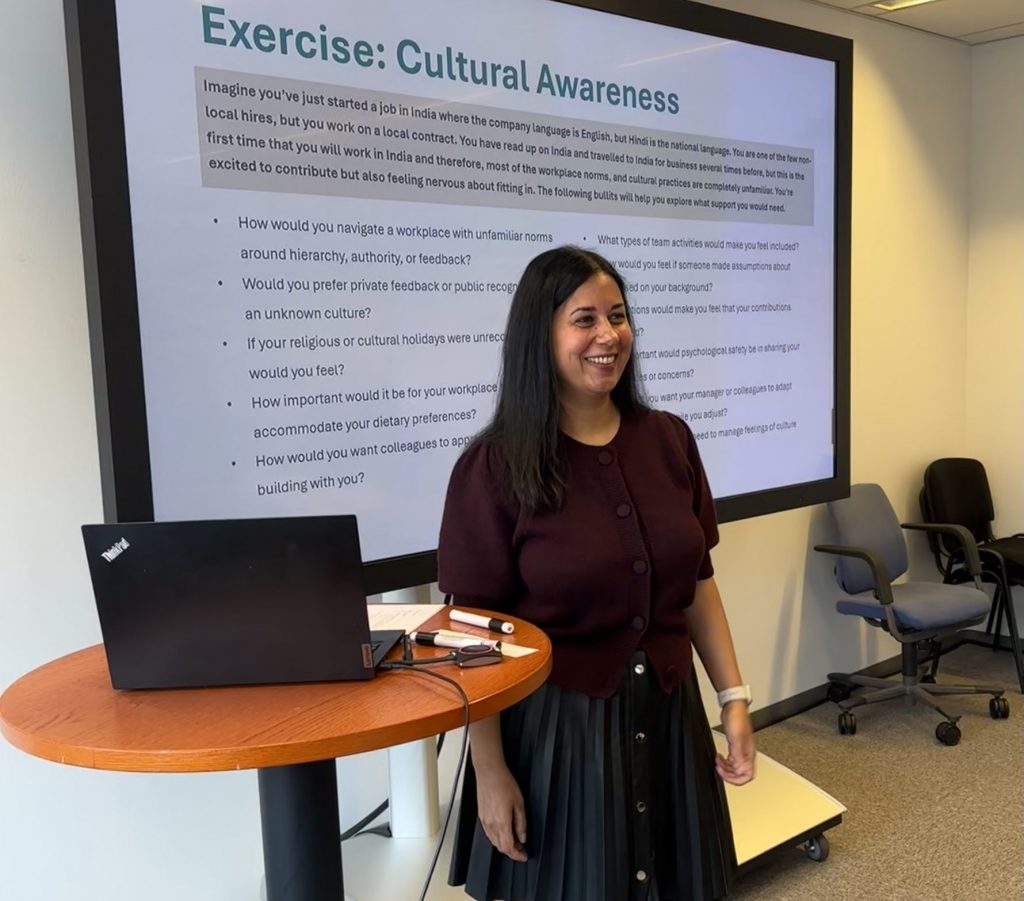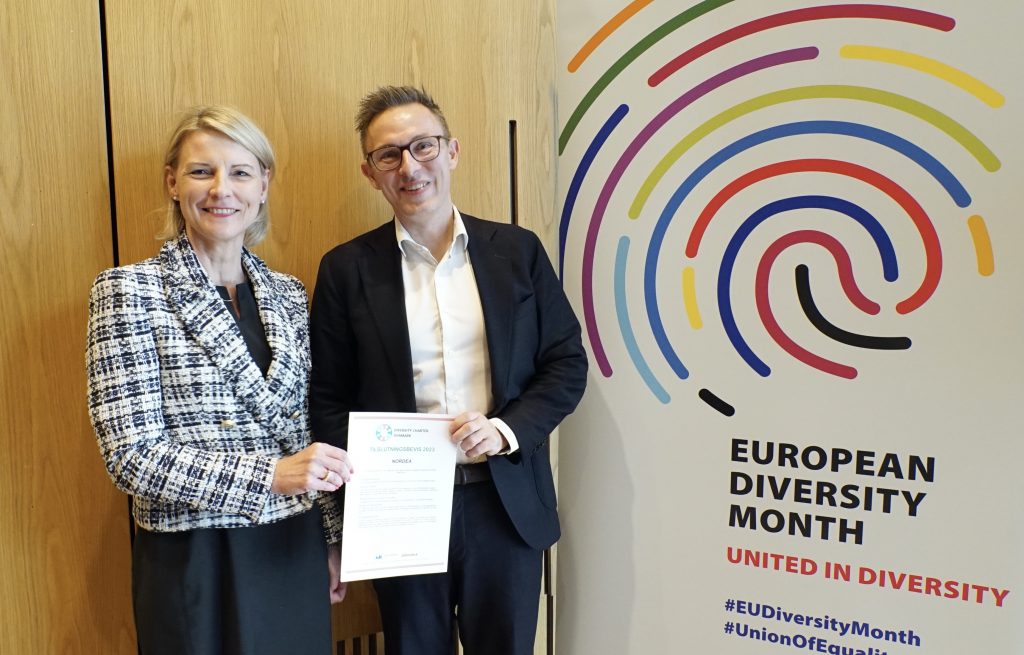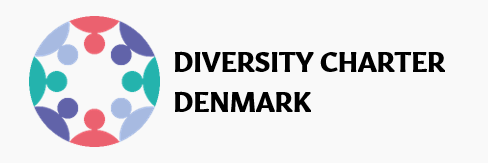Diversity, Equity, Inclusion & Beloning
Part of the European Diversity Charters, supporting companies in creating inclusive workplaces.
What is DEIB?
DEIB stands for Diversity, Equity, Inclusion, and Belonging. These four interconnected principles are central to the work of Diversity Charter Denmark and guide our efforts to help businesses create environments that support a diverse and inclusive workforce.

DEIB
- Diversity
Recognition and appreciation of differences in gender, age, ethnicity, religion, sexuality, neurodiversity, and backgrounds.
- Equity
Ensuring fair opportunities for everyone by considering individual needs and removing systemic barriers.
- Inclusion
Creating a culture where everyone feels welcome, respected, and has equal access to opportunities.
- Belonging
Taking it a step further by ensuring that employees are not only included but also feel at home and valued in the community.
Diversity
Recognition and appreciation of differences in gender, age, ethnicity, religion, sexuality, neurodiversity, and backgrounds.
Diversity means recognizing that all individuals are unique. It’s about building a team where employees come from different backgrounds and represent a variety of diversity markers, including but not limited to gender identity, age, religion, ethnicity, national origin, sexual orientation, physical abilities, socio-economic status, education, work experience, and personal interests. A diverse team brings different perspectives, which enriches creativity and drives innovation.
Equity
Ensuring fair opportunities for everyone by considering individual needs and removing systemic barriers.
Equity ensures that everyone has equal access and opportunities. It goes beyond equal chances by addressing barriers that may hinder certain individuals. Organizations must actively work to guarantee fair access to job opportunities, recognizing and mitigating unconscious biases that can lead to inequality. Equity is essential for creating a truly level playing field where all employees have the chance to succeed.
Inclusion
Creating a culture where everyone feels welcome, respected, and has equal access to opportunities.
Inclusion is about creating an environment where everyone feels they belong. It’s not about making employees „fit in,‟ but rather ensuring they feel they truly belong and are valued for their unique qualities. This means cultivating an atmosphere where all personalities, experiences, and competencies are acknowledged and celebrated. An inclusive workplace encourages everyone to contribute freely, knowing their differences are appreciated.
Belonging
Taking it a step further by ensuring that employees are not only included but also feel at home and valued in the community.
Belonging goes hand-in-hand with inclusion but emphasizes a deeper sense of connection. It’s about ensuring that employees feel they are an integral part of the organization and that their contributions are meaningful. A culture of belonging ensures that employees are not only included but also supported and respected in their individuality.
Diversity
Diversity means recognizing that all individuals are unique. It’s about building a team where employees come from different backgrounds and represent a variety of diversity markers, including but not limited to gender identity, age, religion, ethnicity, national origin, sexual orientation, physical abilities, socio-economic status, education, work experience, and personal interests. A diverse team brings different perspectives, which enriches creativity and drives innovation.
Equity
Equity ensures that everyone has equal access and opportunities. It goes beyond equal chances by addressing barriers that may hinder certain individuals. Organizations must actively work to guarantee fair access to job opportunities, recognizing and mitigating unconscious biases that can lead to inequality. Equity is essential for creating a truly level playing field where all employees have the chance to succeed.
Inclusion
Inclusion is about creating an environment where everyone feels they belong. It’s not about making employees „fit in,‟ but rather ensuring they feel they truly belong and are valued for their unique qualities. This means cultivating an atmosphere where all personalities, experiences, and competencies are acknowledged and celebrated. An inclusive workplace encourages everyone to contribute freely, knowing their differences are appreciated.
Belonging
Belonging goes hand-in-hand with inclusion but emphasizes a deeper sense of connection. It’s about ensuring that employees feel they are an integral part of the organization and that their contributions are meaningful. A culture of belonging ensures that employees are not only included but also supported and respected in their individuality.

Why DEIB Matters for Businesses
Embracing DEIB principles is essential for businesses that want to thrive. By prioritizing diversity, equity, inclusion, and belonging, companies foster a more creative and innovative workforce. Employees bring varied experiences and viewpoints that can lead to better decision-making, stronger collaboration, and more effective problem-solving.
Without DEIB, organizations risk perpetuating systemic biases that exclude talented individuals, hindering recruitment, talent retention, and career advancement. Ensuring that everyone has equal access and a sense of belonging not only supports employee well-being but also improves organizational performance and long-term success.
How Diversity Charter Denmark Supports DEIB
Diversity Charter Denmark helps businesses implement DEIB (Diversity, Equity, Inclusion, and Belonging) through networking, knowledge-sharing, and practical workshops. As part of the European network of Diversity Charters, we provide access to valuable EU-driven insights and resources, enabling Danish companies to foster diverse, equitable, and inclusive workplaces.
Our events bring companies together to tackle DEIB challenges, share solutions, and learn from each other’s experiences. By joining Diversity Charter Denmark, businesses can integrate DEIB principles into their culture, drive innovation, improve employee satisfaction, and create an inclusive environment that benefits both employees and the company’s bottom line.


Good Examples of DEIB in Practice
Get inspired by companies that have already implemented strong DEI initiatives. Read about concrete cases where workplaces have actively worked with diversity – from universal design in buildings to inclusive leadership and the use of personal pronouns.
Our goal is to create value for public institutions, private companies, and civil society organizations while supporting diverse talents who face challenges in entering the Danish labor market.
Join us in making Danish workplaces more inclusive, innovative, and diverse.
